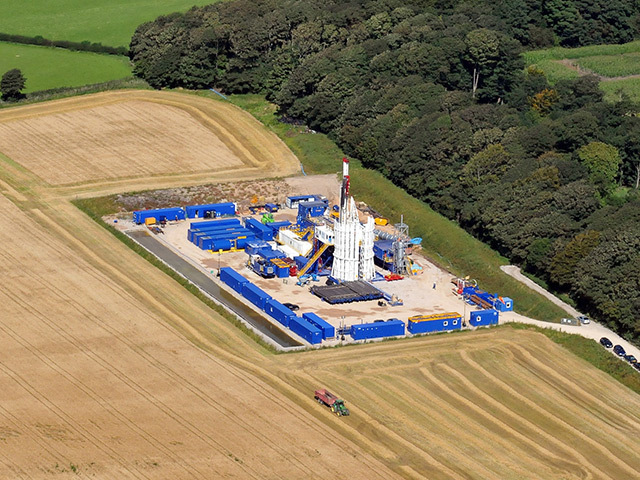
A former UK Government energy policy adviser who faced a storm of criticism for suggesting fracking should take place in “desolate” areas of the North East has said he actually meant “unloved” areas of the country such as parts of the North West.
But his latest comments sparked a rebuke from the deputy Prime Minister, who urged him to keep quiet and suggested people were getting ‘overexcited’ about the possible benefits of fracking.
Lord Howell, who was an adviser on energy policy until April, said that the North East of England was not “in his mind at all” but that he meant “more the drilling going on off the Lancashire coast”.
The Tory peer, who is Chancellor George Osborne’s father-in-law, was forced to apologise on Tuesday after saying in the House of Lords there was “plenty of room” for controversial hydraulic fracturing drilling to take place in the North East without adverse impacts on the environment.
But in an interview with the Telegraph, Lord Howell of Guildford said the general thrust was that he wanted fracking to take place in “unloved places that are not environmentally sensitive” rather than sensitive places “down in Sussex”.
He told the newspaper: “What was in my mind was much more the drilling going on off the Lancashire coast. But it came out of my mouth as the North East, which you can blame me for rightly. And that has created a great furore.
“The North East wasn’t in my mind at all. Afterwards, I checked my words again, playing back the debate.
“It was a stupid error of mine to mention anywhere at all. The general story is right – that we want the derricks for fracking to be far away from residences in unloved places that are not environmentally sensitive. I don’t want to see gas fracking subsidised like wind farms are. A lot more care must be taken than has been the case with wind farms, which have caused terrible desecration.
“It’s odd that they’ve decided to do this in sensitive places down in Sussex.”
Deputy Prime Minister Nick Clegg responded today, however, by telling Lord Howell to keep out of the debate.
Speaking on his regular LBC radio phone-in, the Deputy Prime Minister joked: “I have a simple bit of advice for Lord Howell, which is when you are in a hole, stop fracking.”
Amid continuing protests over use of the controversial extraction technique, Liberal Democrat leader Mr Clegg suggested that Conservatives such as the Chancellor and David Cameron were getting “overexcited” about its potential benefits.
He warned it would be “difficult” to persuade local communities to accept fracking near their homes.
“I think we shouldn’t turn our backs on a new technology, a new way of getting a new energy source, getting gas from the ground,” Mr Clegg said.
“There are people who say it is totally unacceptable in all circumstances. I don’t agree with that but it has got to be done in a way that that is socially acceptable, environmentally acceptable, properly regulated.
“At the moment we are in a very early stage of all of this. My own hunch is that people are getting a little bit overexcited about how much gas is going to be yielded in a short period of time through fracking.
“Because the recent survey which suggests there is huge amounts of frackable gas let’s remember, is gas located in highly populated residential parts of the country where it will be frankly difficult to persuade people that they want these fracking operations in their midst.
“But where it can be done, where people welcome it, where it can be done in a environmentally sound way then of course I think you should let it proceed. But we have got to be cautious, and certainly not suggest that it should be done out of sight, out of mind, in a region where you so happen not to live.”
On Tuesday, the Foreign Office moved quickly to make clear that the southern-based peer – a minister at the department until last September’s reshuffle – was no longer William Hague’s adviser on energy policy.
Although no announcement was made, he apparently left the role in April because he “wanted to pursue a wider range of interests”.
Asked why the peer’s biography and job title was still on the gov.uk website, officials insisted it was only updated “periodically”.